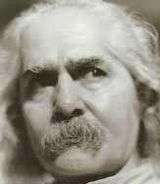Mehdi Akhavan-Sales
| Mehdi Akhavān Sāles | |
|---|---|
 | |
| Born |
Mehdi Akhavān Sāles 1 March 1929 Mashhad, Iran |
| Died |
August 26, 1990 (aged 61) Tehran, Iran |
| Nationality | Iranian |
| Occupation | Poet |
Mehdi Akhavān-Sāles , or Akhavān-Sāless (Persian: مهدی اخوان ثالث) (March 1929 in Mashhad, Iran - August 26, 1990 in Tehran, Iran), pen name M. Omid (م. امید, Hope) was a prominent Iranian poet. He is one of the pioneers of Free Verse (New Style Poetry) in Persian language.
Biography
Mehdi Akhavan Sales was born to Ali, an apothecary (ʿaṭṭār) from Fahraj in Yazd province, and Maryam, a native of Khorasan.[1] Akhavan Sales was born in 1928 in Mashhad, Iran. He gave up an interest in music to appease his father. When the government of prime minister Mohammad Mosaddegh was toppled, he was imprisoned along with other political activists. His daughter Laleh, was born while he was in prison.
After his release from prison in 1957, he started to work in radio, and soon after was transferred to Khouzestan to work in TV. Later on, he taught literature on radio and TV and at the university. After the 1979 Iranian Revolution he was granted membership to the Iranian Academy of Artists and Writers. In 1981 he was forced to retire from government service without pay. In 1990, following an invitation from the cultural organization in Germany, he traveled abroad for the first time. Few months after his return, he died at Mehr Hospital in Tehran. He is buried on the grounds of the mausoleum of Ferdowsi in Tus.
Mehdi Akhavan Sales (M. Omid) was born in 1928, in Mashhad, Khorasan Province, he finished secondary school there. He resided in Tehran in 1949. His first book of poems "Organ" was published in 1951. His tomb is in Tus near Mashhad, near Ferdowsi's grave.
Poetry
Although Akhavan Sales's poetic career began as early as 1942, he did not acquire the degree of recognition, necessary for breaking into the literary circles of his time until the publication of his third volume of poetry in 1956. Called "Zemestan" (Winter), this volume boosted Sales's career and placed him among the top runners for the mantle of Nima Yushij. In fact, for many circles, Nader Naderpour and Akhavan Sales were equally recognized as worthy successors of the Bard of Mazandaran. The fact that like Nima they both had started as traditionalists and had worked their way into new realms of New Poetry through individual initiative itself deserved praise for singular effort.
Akhavan's forte, like the bard of Tus, Ferdowsi, is epic; more precisely, he chooses themes of epical proportion and expresses them with the same zeal that Ferdowsi uses in the Shahnameh. The difference is that they write for two diametrically different audiences. Akhavan Sales need not engage his poetry in gavel by gavel battles of Iranian and Turanian chiefs. Rather, he can focus on the theme and illustrating aspects of it with diverse, often far-fetched similes, metaphors, and symbols.
Finally, Sales's language is complex. While translating his verse, one cannot ignore the impact of the internal rhyme, the interconnection of seemingly disparate images, and the ubiquitous presence of the theme. Sales's "Winter," is a good example for understanding the depth of his conviction as well as the dexterity and the finesse that distinguish his compositions. Iraj Bashiri's translation gives us the English equivalent:[2]
Mehdi Akhavan Sales is considered one of the most important contemporary Persian poets. He is one of the pioneers of Free Verse (New Style Poetry) in Persian literature, particularly of modern style epics. It was his ambition, for a long time, to introduce a fresh style in the Persian poetry.
Works
Poetry
- Organ (Arghanoon ارغنون, 1951)
- Winter (Zemestān زمستان, 1956)
- The Ending of Shahnameh (Ākhare Shāhnāmeh, آخر شاهنامه, 1959)
- From This Avesta (Az In Avestā, 1965, از اين اوستا)
- The Hunting Poems (Manzoomeye Shekār, 1966)
- Autumn in Prison (Pāeez dar Zendān, 1969)
- Love Lyrics and Azure (Aasheghānehā va Kabood, عاشقانه ها و کبود, 1969)
- Best Hope (Behtarin Omid, 1969)
- Selected Poems (Ghozideh-ye Ash-ār, 1970)
- In the Autumn's Small Yard in Prison (Dar Hayāte Koochak Pāeez dar Zendān, در حياط کوچک پاييز در زندان, 1976)
- Hell, but Cold (Duzakh Amma Sard, 1978)
- Life Says: Still We Must Live (Zendegi Migooyad Amma Bāz Bayad Zist, زندگي مي گويد: اما بايد زيست, 1978)
- O You Ancient Land, I Love Thee (Torā Ay Kohan Boom o Bar Doost Dāram, تو را اي کهن بوم و بر دوست دارم, 1989)
Other Books
- I Saw Susa (Shush-rā Didam, 1972)
- They Say That Ferdowsi (Guyand Ki Ferdowsi, 1976)
- An Ancient Tree and the Forest (Derakhti pir va jangal, درخت پير و جنگل, 1977)
- And Now a New Spring (Inak Bahar-i Digar, 1978)
- Fight on, O Hero (Bejang, Ey Pahlavān, 1978)
- Nima Yushij's Innovations and Aesthetics (Bed'athā va Badāye'i Nimā Yushij, بدعت ها و بدايع نيما يوشيج, 1979)
- Nima Yushij's Bequest (Atā va Laqā-i Nimā Yushij, عطا و لقاي نيما يوشيج, 1983)
See also
References
- ↑ "AKHAVAN-E SALESS MEHDI Iranica". Iranica. Retrieved 2016-01-19.
- ↑ Bashiri, Iraj. "Life of Mehdi Akhavan Saless". Working Papers on Iran and Central Asia. Retrieved 6 October 2013.
- his biography in BBC Persian
- his biography in Aftabnews
- his biography
- Website of Mehdi Akhavan Sales
External links
| Wikiquote has quotations related to: Mehdi Akhavan-Sales |
- Website of Mehdi Akhavan Sales
- Iran Chamber
- A Brief Note on the Life of Mehdi Akhavan Sales by Iraj Bashiri